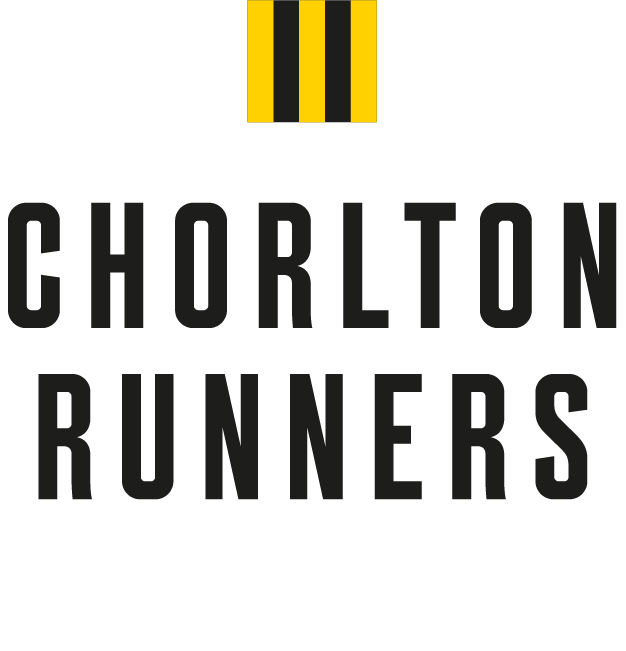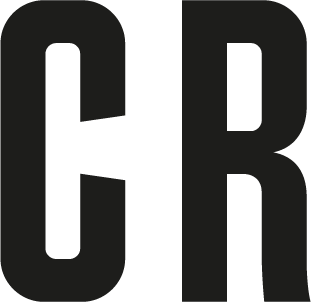Grievance & Disciplinary Policy and procedure
Complaints and Disputes
All concerns, allegations or reports of malpractice or abuse relating to the welfare of children or vulnerable adults will be recorded and responded to swiftly and appropriately in accordance with the Club’s and England Athletics’s safeguarding policy and procedures. The Lead Welfare Officer shall be the lead Officer for all Members in the event of any safeguarding concerns.
Any complaints of misconduct (improper or unprofessional conduct) regarding the behaviour of members or officers shall be dealt with by the Club in accordance with its discipline and appeals process and must be presented in writing to the Lead Welfare Officer (and where the matter relates to the Lead Welfare Officer, the complaint must be submitted to the another Welfare Officer or Secretary, as appropriate). Unless exceptional circumstances apply, the Welfare Officer(s) will hear complaints within fourteen days of receiving a complaint. If the complaint is sufficiently evidenced, the Welfare Officer(s) will appoint 3 (three) Club Members (who have no direct or indirect interest/involvement in the matter) to sit on a disciplinary panel. Subject to rule 3 below, a decision of the disciplinary panel shall be final and conclusive.
Any appeals must be received by the Welfare Officer(s) within 7 (seven) days of receiving the written decision and, if appropriate, the appeals process will be followed.
Any complaints of serious misconduct (including, without limitation, theft, doping violations, fraud, physical violence, safeguarding policy breaches, serious breach of applicable health and safety, gambling and/or ticketing regulations or any act or omission of the member or officer which in the opinion of England Athletics, acting reasonably, brings or is likely to bring the sport of athletics into disrepute) regarding the behaviour of Members or Officers shall be reported and dealt with by England Athletics in accordance with its Disciplinary Procedures.
If a dispute arises between any Members or Officers of the Club about the validity or propriety of anything done by any Member or Officer under these Rules and the dispute cannot be resolved by agreement, the parties to the dispute must first try in good faith to settle the dispute by mediation before resorting to litigation.
Club discipline and appeal process
Step 1:
All complaints regarding the misconduct of club members should be submitted in writing to the Club Welfare Officer(s) (email: leadwelfare@chorltonrunners.co.uk in the first instance or welfare@chorltonrunners.co.uk or secretary@chorltonrunners.co.uk, otherwise). Where the matter is not appropriate to be dealt with by the Lead Welfare Officer, the complaint shall be sent to another committee member who will triage it as appropriate. The Lead Welfare Officer shall decide a single Welfare Officer to lead on the complaint, which may be themselves. The content of a complaint will include specific details and evidence in relation to the infringement of Club Rules or any other offence or misconduct carried out during or in association with athletics activities which might reasonably be considered as bringing or having the potential to bring the Club into disrepute. Should the complaint be in the scope of the England Athletics (EA) Disciplinary Procedure, the Welfare Officer shall immediately refer the complaint to EA.
Step 2:
Upon receipt of a formal complaint, the designated Welfare Officer shall, having taken, and subject to, such advice as they consider it prudent to take in the circumstances, write to the member or members concerned to inform them of the complaint and to invite them to comment in writing within fourteen days upon the relevant allegations. If the member accepts liability, and the member, complainant, and designated Welfare Officer a sanction, a disciplinary panel will not be convened. After the sanction is served, the complaint will be considered closed. Up to step 2, the complainant retains the right to anonymity. The Committee has the right to join a complaint, if they believe it is in the interest of the club.
Step 3:
On completion of step 2, the Club Welfare Officer will determine if the complaint has sufficient grounds and is capable of being pursued based on the evidence/statements provided and will dismiss any frivolous complaints at this stage. If the matter is sufficiently evidenced a process will be pursued. The Club Welfare Officer will appoint 3 club members to sit on the Disciplinary Panel, none of whom have had any direct interest or involvement in the matter. The complainant and respondent have the right to reject (with grounds) appointments to the panel.
Step 4:
The Club Disciplinary Panel or Hearing will consider the matter on receipt of the initial complaint and formal responses from the member(s) involved. The Club Disciplinary Panel will have the power to suspend temporarily from membership any Member accused of an offence or misconduct, pending further investigations or enquiries. This suspension shall be to facilitate the investigation and be without prejudice to the outcome of the investigation.
The Disciplinary Panel/Hearing will make such further enquiries as it thinks fit and will offer a reasonable opportunity to any Member concerned, who may be accompanied by a supporter, if so desired, to meet with it and answer the allegations and the Disciplinary Panel/Hearing will hear such witnesses as are reasonably produced. The Disciplinary Panel/Hearing will make such procedural provisions as necessary for the just and efficient disposal of the case.
If the Disciplinary Panel/Hearing is satisfied, on the balance of probabilities, that an offence of misconduct has been committed by a Member, then it may impose one or more of the following actions:
note the offence or misconduct but take no further action;
formally warn the Member concerned as to future conduct;
suspend or disqualify the Member from club athletic competition, club coaching and/or administration and/or use of the Club's premises for some definite or indefinite period;
recommend to the relevant governing body that the Member be disqualified from any involvement in athletics for some definite or indefinite period and/or;
terminate the membership or such other penalty as the Disciplinary Panel considers appropriate;
apply costs associated with the offence (e.g., replacing broken items).
All parties concerned will be provided with the Disciplinary Panel’s/Hearing’s formal written outcome notification by hand or by recorded delivery within seven days of the decision.
Step 5 – Appeal Process:
The letter notifying the decision of the Disciplinary Panel shall also set out the right to Appeal. The accused and/or the Complainant may appeal against the decision of the Disciplinary Panel/Hearing, by serving a Notice of Appeal on the Club Welfare Officer within seven calendar days of receiving the written decision. The Notice of Appeal must state the grounds on which the verdict/sanction of the Disciplinary Panel is challenged.
The designated Welfare Officer shall acknowledge a Notice of Appeal within seven calendar days of its receipt and will cast a decision in regard to ‘the grounds on which the verdict/sanction is challenged’. If there are sufficient grounds/evidence provided to support the challenge, the Appeal Panel process will commence (Step 5.1.), if there are insufficient grounds, the appeal will be dismissed. Should the appeal refer to the conduct of the designated Welfare Officer then the designated Welfare Officer should recuse themselves and hand over to another designated Welfare Officer or Club Secretary.
Step 5.1:
The designated Welfare Officer shall appoint an Appeal Panel of three members who have not been involved directly, either in the events giving rise to the Hearing, or in the initial Disciplinary Hearing itself.
The designated Welfare Officer shall inform all parties concerned of the composition of the Appeal Panel. Either party may object to the composition of the Appeal Panel by notifying the designated Welfare Officer of the Objection and setting out the reasons for such an Objection no later than seven calendar days from the date of being informed of the composition of the Panel.
The designated Welfare Officer, within fourteen calendar days from the date of receipt of an Objection, will notify in writing the parties that either:
the composition of the Panel has changed, in which case the Club Welfare Officer shall provide details of the new Appeal Panel; or
the composition of the Panel has not changed, in which case the Club Welfare Officer shall give reasons why it has not accepted the Objection.
Within fourteen calendar days from the date the Club Welfare Officer responds to the Objection above (as appropriate), the Club Welfare Officer shall give such directions to all parties that include;
the date and place at which the Appeal Panel will meet to determine the Appeal.
whether the appeal will proceed by way of written submissions or an oral hearing; and
whether the parties should be required to submit statements of their evidence and/ or written submissions prior to the hearing and, if so, a timetable for doing so and the procedure for exchanging such statements and written submissions.
Powers of the Appeal Panel
The Appeal Panel shall meet on the date fixed by the designated Welfare Officer. The Appeal Panel may at its sole discretion disregard any failure by a party to adhere to this appeal procedure and may give such further directions as may be appropriate.
Any such hearings shall be in private unless all parties agree otherwise, or unless the Appeal Panel directs. The Appeal Panel shall have power to make a decision on the facts as it thinks fit and may:
Quash the original decision;
Confirm the original findings;
Request that the case be reheard (re-trial);
Increase the original sanction;
Abate the original sanction;
The Appeal Panel shall inform all parties of its decision within fourteen calendar days together with written reasons for its decision. The decision of the Appeal Panel shall be final. The Appeal Panel shall decide on any issue by majority.
A supporter can be a legal representative, who must be named, and may accompany the Complainant/Accused throughout the appeal process.
Records of Hearings and Appeals
The decision of a Disciplinary Panel/Hearing, including Appeal Panel/Hearing, shall be recorded and retained in confidential records for a period of six years by the Club. Supporting documentation shall also be retained in the same fashion.
Notification to UK Athletics (UKA) and England Athletics (EA)
Where appropriate the Panel Chair, once the Appeal notice has expired, will inform EA/UKA;
Disciplinary Hearing – details of a decision, including sanctions imposed, will be communicated to EA and/or UKA if it is considered necessary to ensure compliance with a sanction, or for the safety and well-being of those engaged in athletics activity. EA/UKA may determine to publish details on their websites.
Appeal Panel – details of a decision, including sanctions imposed, will be communicated to EA and/or UKA if it is considered necessary to ensure compliance with a sanction, or for the safety and well-being of those engaged in athletics activity. EA/UKA may determine to publish details on their websites.
Co-operation of All Parties
The procedures described in these Discipline Procedures assume that all parties will co-operate in the interest of resolving the issue in question. In the absence of such co-operation, or if it is withdrawn at any stage, the Club reserves the right to proceed with a Hearing or an Appeal based on such evidence and information as it is able to obtain.
When dealing with a complaint, the Club Welfare Officer or nominated Club representative shall be entitled to take, or omit to take, such action as is recommended pursuant to legal advice received from a legal practitioner whom the Club Welfare Officer reasonably believes is competent to provide such advice and/or EA’s legal representative service for affiliated members (contact EA Membership Services for further details on 0121 347 6543).
Caveats to this procedure
This procedure is superseded by any criminal or civil proceedings or EA/UKA disciplinary procedures. This procedure should be suspended if requested by the police, and their advice should be followed with regard to resumption.

